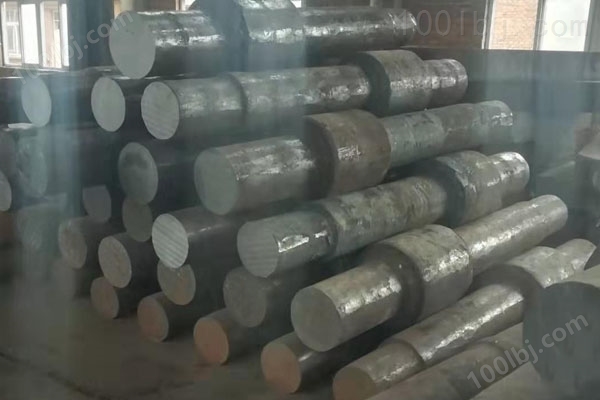品牌
生产厂家厂商性质
唐山市所在地
淬火钢回火时,由于构造产生了变更,故其力学机能也产生了相应的变更。
(1)硬度
淬火钢锻圆厂家回火时硬度的变更规律。总的变更趋向是跟着回火温度升高,钢的硬度陆续降落。但含碳量大于的高碳钢在100℃摆布回火时,硬度反而略有升高,这是由于马氏体中碳原子的偏聚及ε-碳化物析出惹起弥散强硬导致。在200〜300℃回火时,硬度降落缓和。这是由于一方面马氏体剖释,使硬度低垂,另一方面残存奥氏体转变为下贝氏体或回火马氏体,使硬度升高,二者概括影响的后果。回火温度超过300℃往后,由于ε-碳化物转变为渗碳体,共格干系被毁坏,以及渗碳体群集长大,使钢的硬度呈直线降落。
钢中合金元素能在差别程度上减小回火进程中间硬度降落的趋向,进步回火巩固性。强碳化物造成元素还可在髙温回火时析出弥散的分外碳化物,使钢的硬度显著升高,导致二次强硬。
(2)强度和韧性
跟着回火温度的进步,普通来说,钢的强度目标降服点(σ s )、抗拉强度(σ b )不断降落,而塑性目标伸长率(δ)、断面压缩率(ψ)不断上升。在350℃摆布回火时,钢的弹性极限到达极大值,在400℃以上回火时,钢的伸长率(δ)、断面压缩率(ψ)上升非常显著。45钢淬火后的强度并不高,且塑性很差。如在200〜300℃回火得到回火马氏体,且由于内应力消除,使其强度到达极大值;在350〜500℃回火,构造为回火屈氏体,弹性极隈非常高,韧性也较好!在450〜600℃回火,得到的构造为回火索氏体,具有良好的概括力学机能,即较高的强度与良好的塑性、韧性相配合。
唐山锻件厂家哪家好,就找唐山盛通锻造有限公司。
When the quenched steel is tempered, the mechanical function has also changed accordingly due to changes in the structure.
(1) Hardness
The change law of hardness of tempered steel forging round manufacturers during tempering. The general change trend is that as the tempering temperature rises, the hardness of the steel falls. However, when the high carbon steel with more carbon content is tempered at 100 °C, the hardness increases slightly, which is caused by the segregation of carbon atoms in martensite and the precipitation of ε-carbide. When tempered at 200 to 300 ° C, the hardness drop is moderated. This is due to the fact that on the one hand, the martensite is interpreted, the hardness is lowered, and on the other hand, the retained austenite is transformed into the lower bainite or the tempered martensite, so that the hardness is increased, and the effects of the two are summarized. After the tempering temperature exceeds 300 ° C, the ε-carbide is transformed into cementite, the coherent trunk system is destroyed, and the cementite cluster grows, causing the hardness of the steel to fall linearly.
The alloying elements in the steel can reduce the tendency of the middle hardness drop in the tempering process to a certain extent, and improve the tempering consolidation. The strong carbides cause the elements to precipitate the dispersed extra-carbons during the tempering at the temperature, which causes the hardness of the steel to rise significantly, resulting in secondary toughness.
(2) Strength and toughness
With the progress of tempering temperature, in general, the steel strength target drop point (σ s ) and tensile strength (σ b ) continue to fall, while the plastic target elongation (δ) and section compression ratio (ψ) keep rising. . When the tempering is performed at 350 ° C, the elastic limit of the steel reaches a maximum value, and when tempered at 400 ° C or more, the elongation (δ) and the section compression ratio (ψ) of the steel rise significantly. The strength of 45 steel after quenching is not high, and the plasticity is very poor. For example, tempered martensite is obtained by tempering at 200~300 °C, and its strength reaches a maximum value due to the elimination of internal stress; tempering at 350~500 °C, the structure is tempered troostite, and the elastic enthalpy is very high. , toughness is also better! Tempered at 450~600 °C, the structure is tempered sorbite, with good general mechanical function, that is, high strength is matched with good plasticity and toughness.
